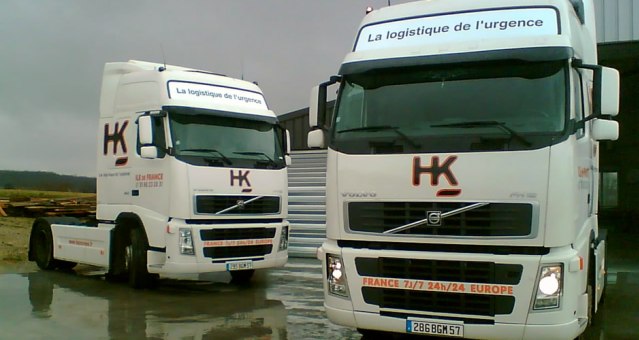What are the criteria for transporting building materials?
The transport function is a fundamental component of site logistics. A true performance factor, it ensures the availability of construction equipment and materials, and enables teams to organize their work as closely as possible. A well-controlled supply flow is a prerequisite for smooth workflows, and makes a major contribution to meeting deadlines. Building professionals regularly call on specialist companies for this type of transport. How to choose the right service provider ? Between safety and environmental concerns, here are the criteria to consider when transporting building materials.
Choosing a service provider based on the materials to be transported
Transporting materials for heavy construction, civil engineering or public works companies can require specific resources. That's why many transporters specialize in a particular sector. The fleet of vehicles and the technical skills they possess are decisive criteria in the choice of a service provider.
It's perfectly feasible to use conventional courier companies to deliver consumables to the job site, especially when on-site service providers have a small stock on hand.
Some deliveries of larger volumes delivered by semi-trailer do not require any specific handling equipment, as such equipment (forklift trucks, cranes, etc.) is generally already on site. However, the scheduling of delivery times, often in the middle of the night in dense urban environments, and the need to provide dedicated teams at the time of delivery for immediate assembly, requires precision in meeting deadlines.
Sometimes, whatever the size of the item to be transported, the criticality of the merchandise requires dedicated express transport: one missing tool, component or spare part can bring the whole site to a standstill, with significant financial implications. Transport can be triggered day or night, with some sites operating 24/7.
For the biggest sites, such as those for the 2024 Olympics and the densification and improvement of transport infrastructures for the Grand Paris construction sites, samples are taken continuously of water, soil and air in contact with the workers. These must then be transported immediately by dedicated shuttles for analysis in specialized laboratories.
Transporting materials to the construction site
A construction site requires a regular supply of materials, especially if they cannot be stored on site. For concrete, aggregate and cement are transported in a conventional dump truck. Ready-to-use concrete is delivered directly to the building site in a mixer truck. Wood, metals and bulky goods are transported on flatbed trucks. In each case, the carrier has to manage the constraints associated with the length and weight of the goods. Together with the on-site reception teams, he must plan the precise time and place of delivery, and ensure that the appropriate handling equipment is available.
Provision of equipment on site
Transporting construction equipment and machinery requires real expertise. It also requires special convoy authorization when the machine exceeds 16.5 meters in length and 2.55 meters in width. Transporters are experts in loading, securing and unloading wheeled and tracked machines. For a turnkey service, some companies offer rental services with drivers.

Transporting materials with safety in mind
The transportation of materials and construction equipment can expose all those involved to danger and accidents. Calling on professionals offers an additional guarantee of safety. Specialized transporters select vehicles according to the material and accessibility of the site. They use the appropriate means to load and unload materials and tools. In most cases, the transport of this equipment is handled by the service providers. This is particularly the case for major rental companies such as LOXAM and KILOUTOU, or for modular constructions by COUGNAUD, ALGECO or the above service providers.
The environmental challenges of transporting building materials
Freight transport companies are well aware of the environmental cost of their activity. They are striving to adopt concrete measures to reduce their greenhouse gas emissions. The same applies to construction and public works companies, all of which have adopted charters to control and reduce CO2 emissions.
Choosing a service provider to limit environmental impact
Favoring short-distance delivery is both economical and more environmentally friendly. Truck transport ensures logistics over very short distances, often less than 50 kilometers. The network of manufacturing plants is particularly dense. The catchment area of a concrete plant is never more than a few kilometers.
Transport companies are gradually renewing their vehicle fleets. They are using alternative fuels such as biogas, bioethanol or electricity. Drivers are also being trained in eco-driving to reduce fuel consumption.
Different ways of transporting building materials
While road transport remains an essential mode of transport, rail and ship are serious alternatives. Trains are a fast, environmentally-friendly way of transporting building materials. It transports large volumes throughout the country, even if, with a few exceptions, the last few kilometers are still covered by truck.
The building materials sector is the main user of river transport. The products transported are mainly quarry products (sand, gravel, rock). River transport enables bulk consolidation. It offers access to city centers, as close as possible to construction sites.
HK Courses offers you its skills as an express carrier, and customized chartering for on-time site deliveries. We regularly work for all types of construction, public works and civil engineering companies. HK Courses provides on-site deliveries of all kinds of materials, and also offers a fast, high-quality service for transporting your samples to analysis companies using spot transport and shuttles.



